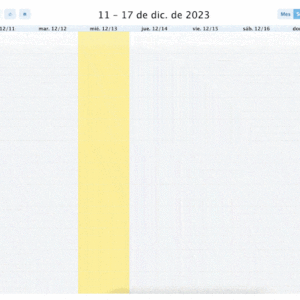Every October 10, the world commemorates World Mental Health Day, recalling the importance of emotional well-being and access to services that help us stay healthy. In this context, technology, especially artificial intelligence (AI), is emerging as a powerful tool to fill important gaps in mental health care, particularly in regions such as Latin America.
Access to mental health care in Latin America: an urgent challenge!
In Latin America, the reality is that many people face significant barriers to accessing mental health services. According to data from the Organización Mundial de la Salud (OMS), in countries such as Mexico and Colombia, there are fewer than 10 psychologists or psychiatrists per 100,000 inhabitants, leaving millions of people without adequate access to treatment. Added to this is the social stigma surrounding mental health problems, which deters many from seeking help.
The COVID-19 pandemic further exacerbated these problems, increasing cases of depression and anxiety in the region by 35%, according to recent studies. In this scenario, artificial intelligence has begun to position itself as an innovative alternative to alleviate this crisis.
Mental health chatbots: an effective solution?
One of the most noteworthy developments in the use of AI for mental health has been the creation of chatbots that offer emotional support through digital platforms. These chatbots, such as Woebot or Wysa, the software uses advanced algorithms to interact with users and offer advice based on cognitive-behavioral therapy (CBT) techniques.
In theory, these applications can provide immediate and accessible care, available 24 hours a day. For those who cannot afford therapy or live in rural areas without access to specialists, these chatbots have proven to be a valuable tool. Studies indicate that, in the short term, they can reduce symptoms of anxiety and depression.
Success stories and areas for improvement
In Latin America, AI platforms are beginning to have a presence in mental health sectors, particularly in Mexico, Brazil and Argentina, where limited access to therapists has driven millions of people to turn to digital solutions. However, much remains to be done.
Despite advances, AI has its limitations. Although it can detect patterns of behavior and predict when someone might need support, the ability of these systems to interpret emotions and provide effective accompaniment is far from matching that of human professionals. In fact, some cases have shown that chatbots can give inappropriate responses or misinterpret users' emotional contexts, which has raised concerns among experts.
An alarming example was the case of a chatbot that, by misinterpreting a user's signals, ended up encouraging him to perform a dangerous act. This incident underscores the importance of having a robust regulatory framework and continuous human monitoring when it comes to using AI in the field of mental health.
The future of AI in mental health: a necessary partnership
As artificial intelligence continues to advance, a future is on the horizon where collaboration between AI and human therapists could be key. Experts point out that AI is most effective when it is used as an adjunct to, rather than a substitute for, human intervention.
For example, some researchers are developing algorithms that could help therapists prioritize patient care based on their level of risk, using AI to continuously track and evaluate patients' progress between sessions. This could optimize practitioners' time and allow them to focus on the most urgent cases.
At COCO Tech, we believe that technology can be a powerful ally in improving the mental health of communities. However, we are convinced that the solution must be balanced and humane. AI can help us make mental health services more accessible, but always in coordination with experts who can provide the human touch needed to interpret complex emotions and sensitive situations.
Facts about AI and mental health in Latin America:
1. In countries like Brazilchatbot services have seen a 70% growth during the pandemic, reflecting the urgency for alternatives in mental health.
2. The use of AI in mental health is being tested in pilot programs at Mexico to detect signs of depression from handwriting patterns and cell phone activity.
3. Platforms such as Sarahdeveloped by OMS, have launched Spanish versions to expand access in under-resourced regions.
Conclusion
On World Mental Health Day, it is critical to recognize the role of technology in improving access to care. However, we must not forget that mental health requires both innovation and humanity. AI is a powerful tool, but its use must be supported by specialists and regulated to ensure that everyone receives the support they need.
If you want to learn more about how COCO Tech is innovating in technology solutions for mental health and how you can be part of this transformation, follow us on our social networks or contact us!





